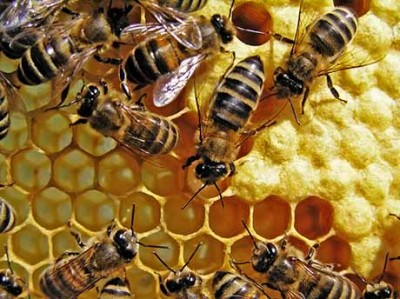Protecting America’s Bees. Bee Depopulation linked to Pesticides. Failure of the US Government
Government Accountability Office (GAO) Report

Echoing charges made by conservation organizations, a new report from the Government Accountability Office finds that the U.S. Department of Agriculture (USDA) and Environmental Protection Agency (EPA) need to step up their actions in order to protect bees.
The report, released to the public on Friday, was based on assessments from October 2014 to February 2016.
The report found that the USDA, “which co-chairs the White House Pollinator Health Task Force with EPA, has not worked with its partners on the task force to coordinate a native bee monitoring plan,” and that its efforts to promote bee habitat conservation may be thwarted by gaps in research and evaluation.
The EPA, meanwhile, has suffered from challenges in data collection and reporting on bee kill incidents that may be linked to pesticides, while its risk assessment guidance “does not call for EPA to assess the risks that pesticide mixtures may pose to bees.”
Among the report’s recommendations are “that USDA coordinate with other agencies to develop a plan to monitor wild, native bees, and evaluate gaps in staff expertise in conservation practices, and that EPA identify the most common mixtures of pesticides used on crops.”
“Ultimately this report reiterates what we’ve known for a long time,” stated Lori Ann Burd, Environmental Health director at the Center for Biological Diversity, “that the USDA and EPA are failing to do what it takes to protect our rapidly declining bee populations.”
“Despite their importance and evidence of dramatic declines, the USDA has failed to take measures to start protecting [native bees],” she continued. And “[f]or far too long, the EPA has turned a blind eye to the impacts of pesticide mixtures.”
In a related development, environmental group Friends of the Earth this week said in a statement:
“Recent allegations of the USDA’s censorship and suppression of scientific research on pesticides calls into question the agency’s ability to co-chair [the White House Pollinator Health Task Force] and develop a meaningful federal strategy that will truly protect bees, birds, monarchs, and other critical pollinators.”

